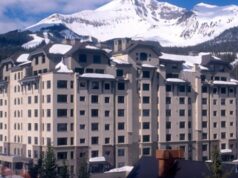 BOULDER, COLO.—Kristen Nowakowski was studying in Costa Rica when she heard rumors that a nearby “sustainable” hotel was not practicing what its website preached. That inspired her to investigate, and she found evidence buttressing the rumor.
BOULDER, COLO.—Kristen Nowakowski was studying in Costa Rica when she heard rumors that a nearby “sustainable” hotel was not practicing what its website preached. That inspired her to investigate, and she found evidence buttressing the rumor.
So she asked broader questions about Costa Rica’s certification system for sustainable tourism. And that became the basis for her honors thesis, which, along with her academic record, allowed her to graduate summa cum laude from the University of Colorado Boulder with majors in geography and environmental studies.
Nowakowski was also named the Outstanding Graduate of the College of Arts and Sciences for the fall 2012 commencement. Recently, she spoke with Dean Steven Leigh about her work and career.
While in Costa Rica last summer, a professor and some local residents told her that a large “sustainable” hotel near where she was studying was suspected of polluting the Quebrada Sin Nombre (No Name Stream) with black water, or sewage.
She set out to test the evidence. “I hiked 10 hours a day for a couple of weeks and took stream-quality samples,” dissolved oxygen, nitrate, phosphate, pH and temperature. She also collected larvae samples of Odonates, dragonflies and damselflies. She aimed to determine if the Odonates could be used as biological indicators of stream quality. “I found that they could,” she said.
Strong Evidence Found
Ninety-five percent of her Odonate sample was found at the headwaters, above the hotel. “There were almost none beneath the hotel.” She also had dissolved oxygen and Ph readings indicating that the hotel was probably polluting the stream.
Additionally, she found a big landfill on the hotel property, “where they seemingly had burned all of their recycling and trash.”
When she returned to CU-Boulder, she investigated the Costa Rica system of verifying “green hotels.” It’s called the Certification for Sustainable Tourism—or CST.
“This particular hotel was certified, and they probably got a lot of business from being a certified sustainable hotel,” Nowakowski said.
The hotel marketed itself that way on its web page. “There’s a long quote about how they’re devoted to Mother Nature and they do a lot of things around the community, and they’re super-sustainable.”
More Scientific Measurement Needed
While researching Costa Rica’s certification program, she looked at other countries’ systems and used her own case studies to recommend improvements in the CST. For instance, “Auditors need to be doing more scientific measurements to determine if these hotels are actually complying with sustainability standards.”
But why focus on Costa Rica’s claims of sustainable tourism? “It’s one of the most prominent certification systems in the world, and it’s used as a model by a lot of other countries, but it has its own flaws.”
“It’s also important because Costa Rica is only 0.01 percent of the Earth’s surface, but it has 5 percent of the world’s biodiversity, which is why they created sustainable tourism in the first place, so they don’t kill their industry while promoting it.”
“I think the main reason hotels participate is to improve their image and to get more business,” she said. But verification is needed, the evidence suggests.
The hotel Nowakowski studied got points for collecting recycling, “but evidence suggests they didn’t actually recycle.”
Flaw in Audit System
The CST audits each hotel when it first applies to be certified, “but I didn’t actually find any evidence that they went back and did second or third or fourth audits. And a hotel could change its administration or management, and all sustainability could just fall by the wayside.”
Nowakowski observes that the Costa Rican government supports the CST but that the program is underfunded. She suggested that hotels pay for the service, “because they are profiting from that seal” of approval.
From a larger perspective, Nowakowski notes that wastewater treatment in Costa Rica is a largely unaddressed issue; only about 5 percent of wastewater nationwide gets treated. Meanwhile, 60 percent of the nation’s population lives in the central valley, which includes the capital, San Jose.
“All of their sewage just goes into rivers and eventually into the ocean,” she noted. In the last decade, valley residents have discussed installing a wastewater-treatment plant, but the residents can’t agree on where to put the facility.
One reason Nowakowski took scientific observations was to encourage the CST to do more scientific observations and verification. In some cases, Nowakowski suggests, hotels have sustainability programs about which hotel workers are unaware.
Suggestions for Improvements
Nowakowski suggests “incentivizing” hotels to exceed minimum standards of compliance. Tax breaks for high-performers could also help, she suggested. She proposed that consumers have more input, become more educated and have easier access to information about each hotel.
The CST is a tiered system. Hotels are rated on a scale of one to five leaves, based on their compliance. Hotels that have at least 94 percent compliance with the standards are ranked with five leaves, the highest sustainability rating. Those that comply with 20 percent of the standards can be certified with one leaf.
“But 20 percent here at CU would be failing, and I personally think the baseline should be increased.”
A hotel “certified” with one leaf might make consumers feel good about patronizing the establishment, but consumers should become more informed about the certification system. “I think consumers should know what they’re buying.”
CST Website Needs Updating
At least half of the tourists in Costa Rica are American, and many others are from Europe. That means that much of the clientele does not speak Spanish. But much of the CST website is in Spanish, which could obscure the level to which individual hotels have adopted sustainable practices.
As she prepares to leave CU-Boulder, she recalls that she applied to no other school. “I just really love the mountains, and I love the school.”
Nowakowski plans to get her master’s degree but is undecided on the field. She is interested in sustainability and hydrology. “And I really don’t know which one I want to go into, so I’m going to hold off on graduate school for a year or two.”
Meantime, she will work at an environmental consulting firm in Denver.
This article first appeared in the Colorado Arts & Sciences Magazine, a publication of the College of Arts & Sciences, University of Colorado Boulder.







